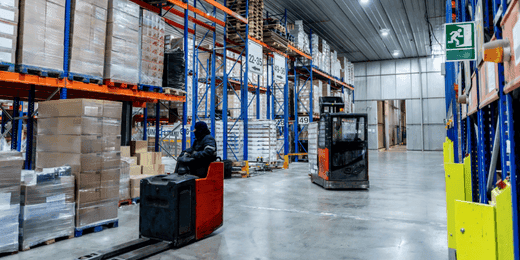An In-Depth Guide Into Nutraceutical Manufacturing
Learn how nutraceutical manufacturing works—from development to distribution—and why safety is a top priority at every stage.

Published 30 Apr 2025
Article by
5 min read
What is Nutraceutical Manufacturing?
Nutraceutical manufacturing is the development, production, and distribution of nutraceuticals, which are food-based products with natural health, therapeutic, or medical benefits. These benefits can range from boosting the immune system to enhancing physiological performance. Since nutraceuticals aren’t regulated the same way as pharmaceuticals by the Food and Drug Administration (FDA), it’s up to manufacturers to follow strict quality standards, use accurate labelling, and carefully create safe, effective formulas.
What are Nutraceuticals?
The term “nutraceuticals” comes from the words “nutrients” and “pharmaceuticals,” which was coined by Dr. Stephen DeFelice in 1989. As the name suggests, nutraceuticals need to come from a food source that gives nutrients, but also needs to give you the extra health benefits of a pharmaceutical.
However, it is important to know that nutraceuticals are supplements, not medicine to cure an already diagnosed disease or medical condition. Thus, they are regulated differently from pharmaceuticals and other FDA-approved medicines.
For example, if you have a heart-related condition, with a doctor’s prescription, you can take safe pharmaceuticals. But if you want to strengthen your heart health, you can take nutraceutical products like fish oil capsules, which are made from natural resources.
Improve your EHS Management
Cultivate a safe working environment and streamline compliance with our EHS solutions.
Examples of Nutraceutical Products
Nutraceuticals can generally be divided into two groups: food-based nutraceuticals and supplement-based nutraceuticals.
Food-based nutraceuticals are whole foods with natural health-boosting nutrients, such as the following:
Blueberries
Turmeric
Garlic
Chia Seeds
Oats
Yogurt with Probiotics
On the other hand, supplement-based nutraceuticals are compounds that are often sold in branded products like:
Fish oil
Probiotics
Collagen
Ubiquinone (CoQ10)
Spirulina
Ginseng
How are Nutraceuticals Manufactured?
Before manufacturing begins, thorough research on the formulation process is essential. It’s crucial to understand which compounds and ingredients have synergistic effects to avoid negative reactions. Manufacturers must also consider the bioavailability of each active ingredient, which is the percentage of an ingredient that is absorbed and utilized by the body. To improve absorption, techniques like nanoformulation or the use of bioenhancers (such as black pepper extract) may be used.
Nutraceuticals can be formulated in various forms—such as tablets, capsules, liquids, or powders—depending on which is most compatible with the ingredients involved. Tablets, in particular, are typically produced through a process called direct compression, where essential nutrients from various food sources (such as soluble fiber, probiotics, or omega-3 fatty acids) are compacted into a single pill. However, everyday superfoods like blueberries, turmeric, garlic, and green tea can also be considered natural, food-based nutraceuticals.
The manufacturing process of nutraceutical products relies heavily on conveyor systems and strict factory compliance. Workers must ensure ingredients are stored properly, and that temperature levels are closely monitored. Quality control of all key machinery is also important. That’s why power and vibration sensors are used—to ensure accurate dosage per pill and to detect any issues with the equipment. These systems play a critical role in maintaining food and manufacturing safety standards during tablet production.
From managing delivery fleets to overseeing waste disposal, every step is taken seriously. Since the FDA doesn’t require pre-market approval for nutraceuticals (only post-market oversight), manufacturers must be especially diligent to ensure their products are safe for consumption.
Explore SafetyCulture Monitoring Solution
Utilize advanced sensor technology to monitor assets, automate vital alerts, implement actions, and report urgent issues.
Regulations Regarding Nutraceutical Manufacturing
Nutraceutical manufacturing differs from around the world. Everyone has their set of rules and regulations to follow.
In the US, the FDA regulates nutraceuticals as dietary supplements, which have their own set of rules. The Dietary Supplement Health and Education Act (DSHEA) of 1994 defines “dietary ingredients” and ensures they are safe for consumption before reaching the market. However, manufacturers are primarily responsible for following these standards, while the FDA oversees the market and intervenes when necessary.
On the other hand, in the European Union, the European Food Safety Authority (EFSA) classifies nutraceuticals as food supplements. While EFSA doesn’t directly regulate nutraceuticals, it provides guidelines and risk assessments. Additionally, any claims made on these products must be clear and accurate, in accordance with Regulation (EC) No 1924/2006.
Safety Concerns in Manufacturing Nutraceuticals
Manufacturing safety is important for nutraceuticals because these products are going directly to consumers. That means the ingredients, labels, and health claims must be legitimate and verified.
Nutrients and natural compounds can be especially tricky. Because many nutraceuticals are derived from herbs and botanical materials, they can carry microorganisms and other hazards from the soil. If temperature and humidity aren’t properly controlled, those can quickly multiply. Relatedly, without proper pathogen detection systems in place, contamination can spread easily and affect the entire manufacturing process.
Another important safety concern is product testing. Before a nutraceutical reaches the customer, manufacturers are responsible for verifying its purity, effectiveness, and allergen safety through proper testing. They can also apply for a USP Verified Mark, which shows that the supplement meets FDA requirements and follows current Good Manufacturing Practices (GMP).
Another safety hazard that’s easier said than done is the factory environment itself. Some questions to ask when assessing environmental safety in a factory are the following:
Is the work area clean and GMP-certified?
Are there smoke detectors or leak detectors in place? Is the building well-ventilated ?
Are workers properly trained to manually handle supplements?
Is everything being regularly audited ?
These seemingly small factors can add up and become significant food safety concerns, impacting both the manufacturing process and costs.
Simplify Compliance in Nutraceutical Manufacturing with SafetyCulture
Why Use SafetyCulture?
SafetyCulture is a mobile-first operations platform adopted across industries such as manufacturing, mining, construction, retail, and hospitality. It’s designed to equip leaders and working teams with the knowledge and tools to do their best work—to the safest and highest standard.
Efficiently manage and streamline health and safety processes across the organization, including incident management, safety audits and inspections, risk assessment, waste management, and more, using a comprehensive EHS software solution.
✓ Save time and reduce costs ✓ Stay on top of risks and incidents ✓ Boost productivity and efficiency ✓ Enhance communication and collaboration ✓ Discover improvement opportunities ✓ Make data-driven business decisions
FAQs about Nutraceutical Manufacturing
In this article
- What is Nutraceutical Manufacturing?
- What are Nutraceuticals?
- Examples of Nutraceutical Products
- How are Nutraceuticals Manufactured?
- Regulations Regarding Nutraceutical Manufacturing
- Safety Concerns in Manufacturing Nutraceuticals
- Simplify Compliance in Nutraceutical Manufacturing with SafetyCulture
- FAQs about Nutraceutical Manufacturing
Related articles
Manufacturing Procedure
Operations

The Blueprint for Refrigeration Optimization
Learn how refrigeration optimization improves energy efficiency, reduces operating costs, and extends equipment lifespan across industries.
Operations
Manufacturing Procedure

The Meatpacking Industry: How Meat Reaches the Market Safely
Learn everything about meatpacking, from core processes, safety standards, to technology that reshapes the industry.
Compliance
Manufacturing Compliance

Guide to Effective Material Handling in Modern Operations
Learn how material handling works, from manufacturing to disposal, to improve efficiency, safety, and sustainability.